Golden Flowers Bloom at Port: Women Examine Trains, Ensure Safety of International Railway Freight Transportation
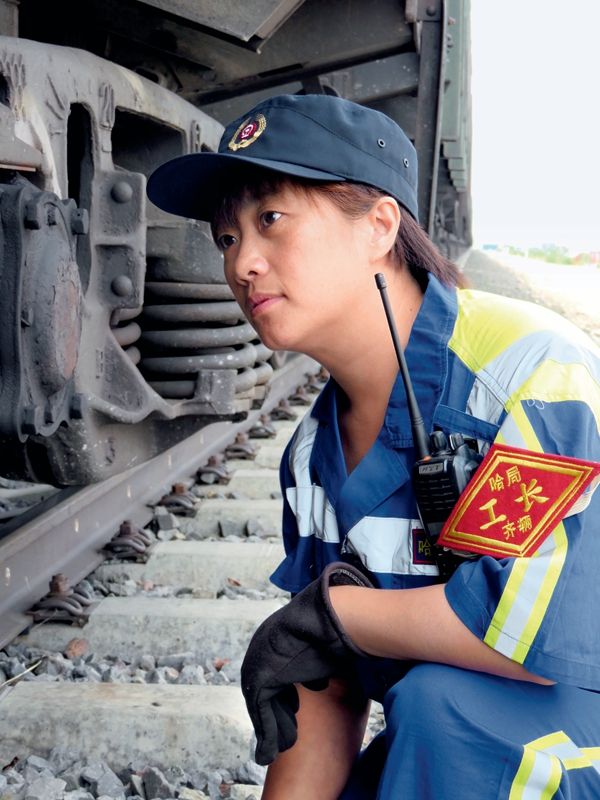 |
| Chen Jia |
Manzhouli, in North China's Inner Mongolia Autonomous Region, is the largest land port on the China-Russia border, and it is an important port of the Belt and Road Initiative. A women's inspection team, headed by Chen Jia, is responsible for examining Russian freight trains, and for ensuring the safety of international railway freight transportation. Chen and her four team members are known as the "Five Golden Flowers of the Port."
Manzhouli Station, at the Qiqihar Depot of China Railway Harbin Group Co., Ltd, established a women's inspection team in March 1986. Chen, the second head of the team, has been working at the station for more than 10 years.
"We are mainly responsible for technical examinations of inbound Russian freight trains. We check whether the inbound trains have damaged or missing components, and we evaluate the condition of outbound trains," Chen says.
Some people think such work is more suitable for men, as it is painstaking. Chen disagrees. "Women are careful and meticulous, which is helpful for the work."
Thorough Inspections
As the railways in Russia are wider compared with those in China, the freight from Russia must be reloaded onto Chinese trains at Manzhouli Station before it can be transported to other regions of China.
Chen and her team members always remind themselves their work embodies the image of the motherland. They have irregular work hours, and dinner and rest breaks. Whenever a train arrives from Russia, the team must spring into work at once.
A typical freight train has more than 10,000 components. During work hours, the team must repeat three actions — bending down low, looking up and leaning forward. For one work shift, they usually check more than 300 carriages, which means they repeat the three actions about 8,000 times.
The winter lasts approximately six months in Manzhouli, and the lowest night-time temperature in winter can reach minus 40 degrees Celsius. The harsh natural environment poses a big challenge for outdoor work. But it also hones the strong will of Chen and her team members.
"Although we wear thick uniforms, we still feel cold. Normally, it takes us about 40 minutes to examine a train. But it will take about two hours if it rains or snows. No matter how bad the weather is, we must examine the trains thoroughly," Chen says.
One year, it snowed heavily on Chinese New Year's Eve. As many parts of the trains were buried under snow, Chen and her team members had to use their hands to remove the snow to examine the cars. They examined six trains that night.
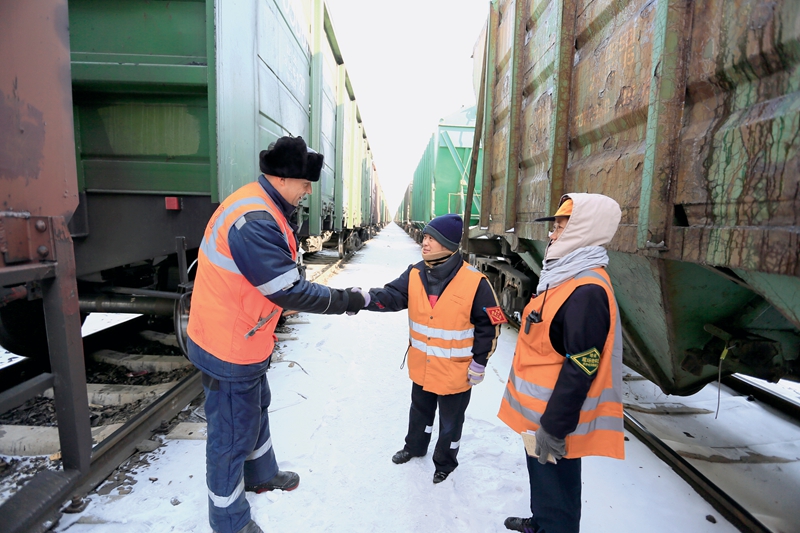 |
| Chen Jia (middle) shakes hands with a Russian railway worker. |
Experienced Professionals
The five women are experienced workers. Zhang Cuiyan, the oldest member of the team, has more than 20 years of work experience in examining trains. She says the members' mutual support is the key to overcoming difficulties. "We are like family," she says.
Chen and her colleagues have studied hard to improve their Russian-language skills, as they have to communicate with workers from Russia. Chen has a notebook full of technical terms, in both Chinese and Russian. "We have also compiled a Chinese-Russian comparison table about common terms for vehicle failure, which provides convenience to our work," Chen says.
During the past 34 years, the women's crew has found malfunctioning components on trains more than 1.5 million times. If the components hadn't been found, the possible malfunctions could have resulted in accumulated claims of nearly 100 million Swiss Francs (about 700 million yuan or US $101 million).
"We must perform our duty earnestly, to ensure the safe operation of the vehicles. Some damaged components seem trivial, but they may cause serious accidents if they are not detected timely," Chen says.
She and her crew have won recognition from Russian workers for their professionalism. An employee of the Russian railway department, whose given name is Pavel, has worked in Manzhouli for 10 years. He has developed deep friendships with the crew.
"After years of cooperation, we can understand each other well. We negotiate with each other, and we find solutions when we encounter problems. Examining trains requires a strong sense of responsibility, and the spirit of hard work. The Chinese women's crew is really something," he says.
"Examining trains is hard work, but it is also fun. I feel happy every time I successfully finish examining a train. I can feel the value of the work," Chen says.
Serving China
At present, Chen and her team members examine an average of 20 trains per day. The total distance they usually walk during one work shift generally exceeds 20 kilometers.
The women's crew has received many provincial and national honorary titles for devotion to work. On March 6, 2019, Chen, on behalf of her team, received the National Women's Civilization Post award, granted by the All-China Women's Federation, at the Great Hall of the People, in Beijing.
"I felt so excited to receive the award at the Great Hall of the People. It will inspire me and my team to continue to contribute our strength and wisdom to our work," Chen says.
The Publicity Department of the CPC (Communist Party of China) Central Committee and the All-China Federation of Trade Unions issued the stories of the 2019 Most Beautiful Workers on May 3, 2019. Chen was one of the nine individuals who received the honorary title.
When asked what makes them to stick their post, Chen replied on behalf of her team. "We stay here because we are as excellent as our male colleagues, and we have the firm faith to better serve our country."
Photos Supplied by Qiqihar Depot
(Source: Women of China English Monthly February 2020 issue)
Please understand that womenofchina.cn,a non-profit, information-communication website, cannot reach every writer before using articles and images. For copyright issues, please contact us by emailing: website@womenofchina.cn. The articles published and opinions expressed on this website represent the opinions of writers and are not necessarily shared by womenofchina.cn.

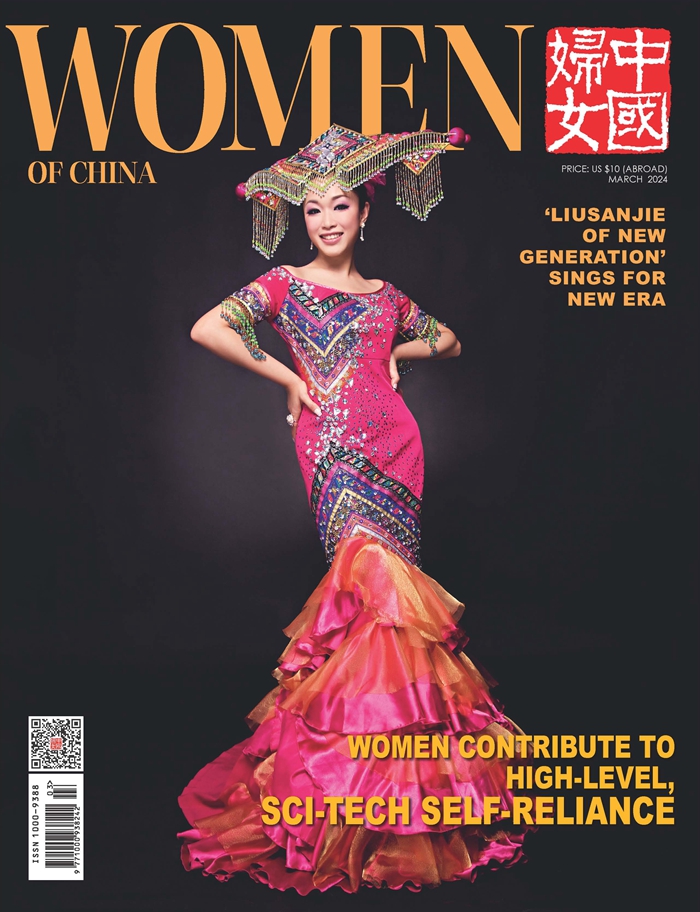
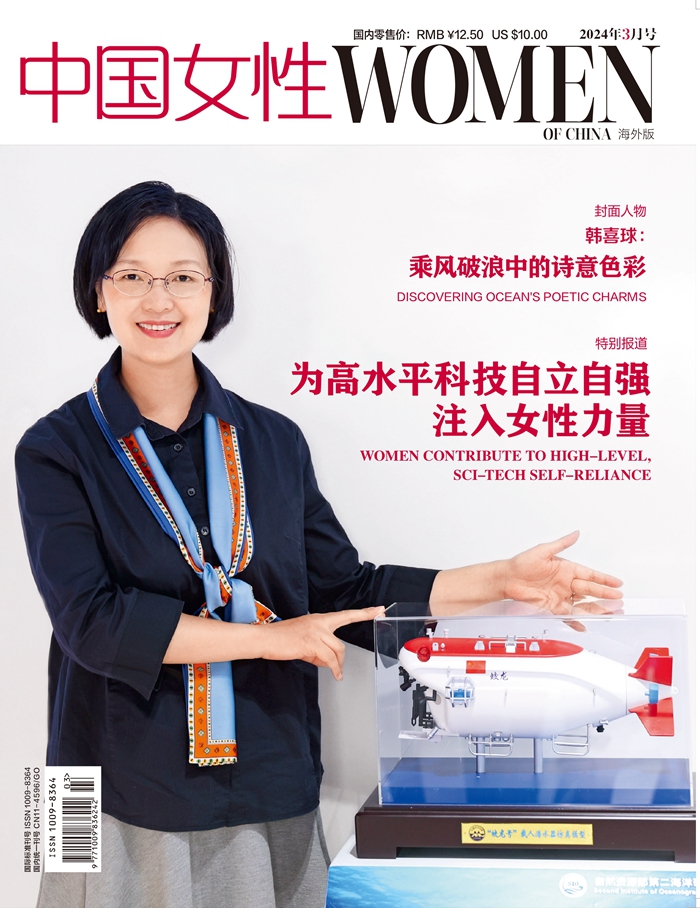
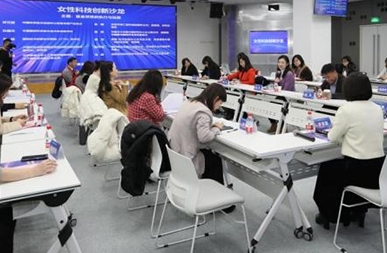
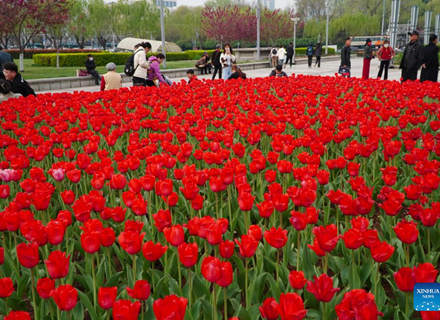
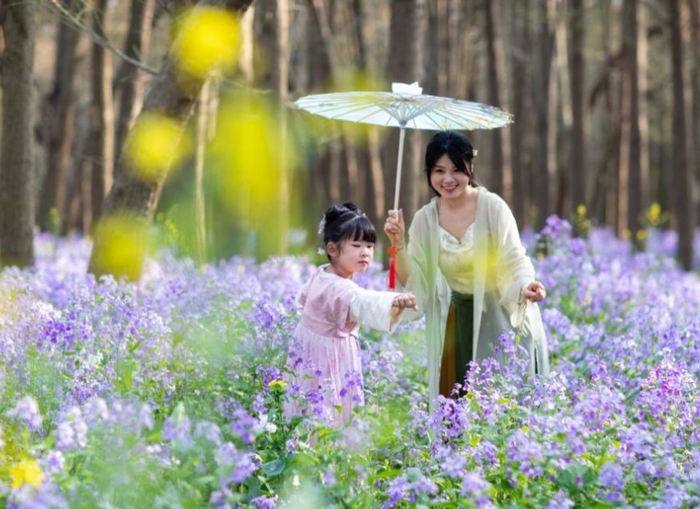


 WeChat
WeChat Weibo
Weibo 京公网安备 11010102004314号
京公网安备 11010102004314号